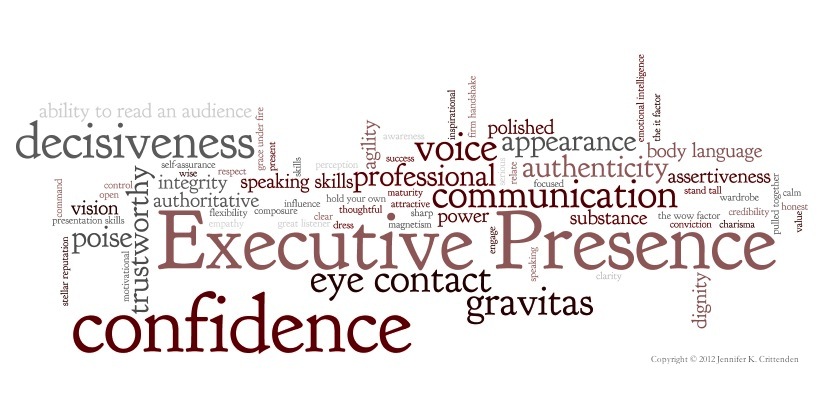I encountered pay discrimination early in my career in a very specific way. I was working as a mid-level finance manager for a company that was otherwise quite well run. Out of curiosity one day, I did some payroll analysis and discovered that in every job category, every female was paid less than any man. It was as though there were two pay scales for every job level. In addition, the most senior positions were held exclusively by men. I was astounded.
I hope you’re not waiting for me to tell you what I did to bring this travesty to the fore, transform this company into an enlightened one, and usher in a new age of pay equality because I did nothing like that. You know what I did? I ignored it. And when I got the opportunity to move to a new division and leave the problem behind, I took it.
I recounted that story in my first book, a career advice book for women working in male-dominated environments. I told the story because I think it’s an example of how discrimination can exist without any awareness on the part of those being discriminated against. A lot of the bias against women is hidden, and only statistical analysis and quantitative studies bring it to light. I did however confess to my sister that I was embarrassed that everyone would now know what a coward I was. “It’s not true that you did nothing!” she replied. “You wrote a book and talked about it.” That made me feel better.
I’m still surprised to hear even human resource professionals assume a woman is satisfied with her salary if they haven’t heard otherwise. At more senior levels, several times I’ve had to question why no salary adjustment was being made for a women at year-end when an increase was given to men in the same department. “She’s happy,” was the response. How do they know she’s happy? “Well, she hasn’t said anything.”
It seems to take some women a few years before they become aware that discrimination still exists. Women just out of school proclaim gaily that things are different now, and for the first few years gender discrimination may not be obvious to them. But I am reminded of a woman who told me recently, “When I first started at my company, it was all guys, but that was okay with me: play like a boy, talk like a boy—basically, be a boy.” After four years, however, she noticed that all the boys had been promoted—except her. Clearly, she was not really a boy after all.
Since the book came out, I have learned more dismal facts about women and salaries, how women who negotiate are viewed (poorly), and the alarming problems that sometimes arise when women attempt to negotiate (including having job offers and opportunities withdrawn). I am asked frequently for advice about salary negotiations, what to do if you find out that a male peer makes more than you do, and fundamentally how and when to stand up for yourself. These questions have not changed, and I find some young women as perplexed as my generation was about the most effective way to earn their worth.
So, what to do? I’d love to blithely offer “Seven Tips for Salary Negotiation,” or “Six Ways to Get a Raise,” but the reality is that it’s not that simple. Everyone’s situation is different, negotiation can’t be taught in a 1000-word blog, and not everyone deserves a raise. We writers love to offer advice in soundbites that sound happy and do-able; it makes our readers feel that they are much smarter than they were 30 seconds before they read the article. Unfortunately, that kind of superficial thinking can lead to problems when you are dealing with something as delicate and important as salary negotiations.
In contrast, here are some more serious thoughts that may be harder to absorb in an instant but may be more helpful in the long run:
Money matters. Your compensation is the fundamental reason why you work. It is rational for you to think about it, focus on it, and try to make it grow. Money is not a dirty subject, and you shouldn’t pretend that you are above such grubby matters as money. If you are working, it’s for money. You may not always choose a job with the highest salary—some jobs are very high-paying because they are awful—but you should be very clear about what tradeoffs you are making.
Get smart. Because compensation is so important, time spent researching salaries is worthwhile. Gather as much competitive salary information as you can about what other companies pay, what probable salary ranges are for your position, and what typical annual increases have been in your location. Be honest about what your degrees and experience are really worth. The goal of this exercise is to objectively and dispassionately understand what an appropriate salary is for someone like you in your position. Recruiting firms and human resource organizations can provide salary data, and there are many online resources now, like GlassDoor.com. Many managers (including me) don’t believe that simply staying in a position for a year or two means you should get a raise. If your manager is one of us, you will need to explain how your responsibilities have changed or what new skills you bring to the table that now justify a salary increase or a promotion.
Prepare. A salary negotiation is a complex and subtle process, and learning about all its aspects is an investment in your future financial well-being. Improving your annual increase by a percent or two can have a dramatic increase on your longterm savings. Understanding how, when, and whether to negotiate is an important professional skill because it will have the most impact on your compensation. There are dozens of books written about negotiation, difficult conversations, gender salary issues, and gender bias. I recommend that you read widely and deeply about all of those issues.
Practice. We sometimes prepare well for a professional challenge but neglect to practice beforehand. When I think about how much time actors and athletes spend practicing before a performance or a competitive event, the lack of practice in the workplace seems truly appalling. You can practice in front of a mirror or in front of a camera, or with a friend or professional colleague. Work hard on word selection, tone of voice, phrasings, what questions you’ll ask, and how you will keep your cool and make your points.
Act. I was sometimes surprised to see how reticent my peers were to actually have the conversation. They were perfectly willing to talk to me about why they deserved a raise, but when I asked what their boss had said about it, they would fall silent. Why? Because they hadn’t brought it up. It might take some fierce self-talk to make yourself do it, but all your work up to this point will be wasted, if you don’t take the next step. Do remind yourself that it’s not a matter of life or death and try to keep a reasonable perspective, but you do have to screw up the courage to finally make the appointment and talk to your manager.
I wish you luck and hope that your managers and colleagues understand your interest in this issue. Let’s all make a pact right now to support each other in our efforts to understand our worth, whether it means asking for more money or not. Women, as well as men, exhibit bias against other women who ask for more money, so we need to actively remind each other that it is fair for a woman to objectively investigate what her salary should be and potentially ask for greater compensation. There is a subtle belief in our culture that women and money should be kept separate, sometimes under the guise of “protecting” the women from such a dirty topic and sometimes when the real intention is to keep women dependent and powerless. Now is the time to dispense with those old ideas. Women and money go together very well.
© 2015 Jennifer K. Crittenden





 Ten 90-minute individualized sessions. Private and confidential.
Ten 90-minute individualized sessions. Private and confidential.

